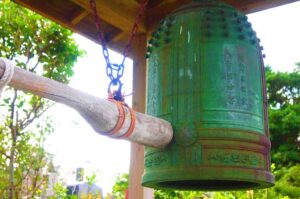Reference from the Agency for Cultural Affairs
- English subtitles -
Japanese form
- Proper use of speaking style
Next, we will learn about how to use different ways of speaking.
In Japanese, the form of words changes depending on the person and the situation.
Use polite language when talking to superiors or strangers.
You can use simple words when talking to family members and close friends.
In this scene, the man is talking to a senior at the company.
My senior asked, “Kinou dokoka ni itta?(Did you go somewhere yesterday?)”
The junior man replied.
“hai. kinou karaoke ni ikimasita. tanoshikatta desu.(Yes. I went to karaoke yesterday. It was fun.)”
The man spoke politely because his seniors are superiors.
In this scene the man is talking to a friend.
My friend asked, “kinou dokoka itta?(Did you go somewhere yesterday?)”
The man replied.
“Un. Kinou wa karaoke ni itta. Tanoshi katta.(Yeah. I went to karaoke yesterday. It was fun.)”
He is talking to a close person, so it’s different from talking to his seniors.
Let’s compare the two conversations.
For superiors
“Hai. Karaikeni ikimasita Tanoshikatta desu.(Yes. I went to karaoke. It was fun.)”
said.
On the other hand, when talking to friends
“Ee. Karaoke ni ikimashita. Tanoshikatta desu.(Yeah. I went to karaoke. It was fun.)”
said.
“Hai(Yes)”, “Un(Yeah)”
“Ikimasita”, “itta”
“Tanoshikatta desu”, “Tanoshikatta”
The shape of the words is different.
In Japanese, you can change the form of words to change the politeness.
Japanese form
Here, we learned nouns, verbs, adjectives, sentence composition, particles, and how to speak properly.
- Japanese subtitles -
日本語の形
4、話し方の使い分け
次に話し方の使い分けについて話します。
日本語は相手や状況によって言葉の形が変わります。
目上の人やあまりよく知らない人と話すときには丁寧な言葉を使います。
家族や親しい人と話すときにはくだけた言葉を使うことができます。
この場面では男性は会社の先輩と話しています。
先輩は、「昨日どこかへ行った?」と聞きました。
後輩の男性は答えました。
「はい。昨日はカラオケに行きました。楽しかったです。」
先輩は目上の人ですから、男性は丁寧な言葉で話しました。
この場面では男性は、友達と話しています。
友達は「昨日どこか行った?」と聞きました。
男性は答えました。
「うん。昨日はカラオケに行った。楽しかった。」
親しい人と話していますから、先輩と話す時と違います。
2つの会話を比べてみましょう。
目上の人には、
「はい。カラオケに行きました。楽しかったです。」
と言いました。
一方友達と話す時は、
「うん。カラオケに行った。楽しかった。」
と言いました。
「はい」、「うん」
「行きました」、「行った」
「楽しかったです」、「楽しかった」
のように言葉の形が違います。
日本語は言葉の形を変えて丁寧さを変えることができます。
日本語の形
ここでは、名詞・動詞・形容詞、文の構成、助詞、話し方の使い分け、について勉強しました。
If you have any questions, ask them for free! ➡ Japanese Question Form

Japanese tutoring
It is very difficult to find the ideal tutor, even if there are many Japanese people around you.
Wouldn’t it be nice to have the perfect tutor near you who is always ready to answer your questions?
How great would it be if there were a convenient and easy way to meet a Japanese tutor near you?

When is “Yama no Hi(山の日 Mountain Day)”? What is its meaning?
Does your country have a national holiday called “Yama no Hi(Mountain Day)”? In Japan, an island country with many mountains,

Average height of Japanese women and men
When you live in Japan for a few years for work or other reasons, it is basically necessary to understand

Japanese Players Active in European Soccer
Shohei Ohtani, who has become a major league baseball player, is world famous in the baseball world, but there are

Why do we ring the temple bell 108 times?
The last event of the year is probably to listen to the sound of the bell ringing 108 times on





